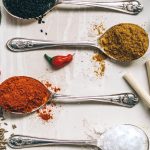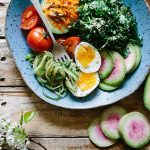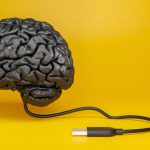Do women really have different nutritional needs than men? You may be aware of the need for equal gender rights, but men and women have different needs when it comes to nutrition. Nutritionist and yogi Elisa Pineda explains all…
Although man and women are 98.5% identical in their DNA, there are differences between the sexes.
Due to differences in specific physiological functions in men and women, some nutrients are key for certain body parts. The female reproductive system, breasts and even skin can all be affected. Here are some nutrients and foods important for women’s health:
Reproductively Healthy
A woman’s reproductive system has an automatic cleansing mechanism. Beneficial bacteria play an important role in the balance of the pH. This controls the natural flora and inhibit the growth of disease-causing microorganisms.
There are many factors that can contribute to this balance. Stress levels can lead to changes in the serum level of many hormones. Your level of physical activity and your diet are factors that can have an impact in your reproductive system’s balance and health. Improving your diet and including specific nutrients can go a long way in the regulating processes and functions of your reproductive system.
Probiotics
There are different species of lactobacilli such as L. acidophilus, Lactobacillus GG, L. rhamnosus, L. reuteri, L. plantarum and L. salvarius. All are important to maintain an acidic pH which is optimal for vaginal health. These probiotics require special nutrients to thrive and survive. One of the most important nutrients that these microorganisms rely on is fibre.
A plant-based diet rich in pulses, fruits and vegetables will provide a healthy environment for these types of bacteria. A diversity of beneficial bacteria will contribute to strengthen your immune system. It will also prevent attacks from disease-causing microorganisms.
Vitamin A
When it comes to fertility, vitamin A can help contribute in a major way with nutrition. Vitamin A helps to promote and produce more cervical fluid. The produced fluid is natural nourishment for sperm which allows additional time for it to meet the egg. Where to get it? Add eggs, sardines and orange-coloured fruits and veggies to your diet. This will boost your beta-carotene intake. It will also allow the body to safely transform the food into vitamin A.
Vitamin D
Vitamin D is a hormone that may protect against premature birth due to this vitamin’s involvement in the immune system regulation. It also helps keep the balance of calcium and phosphorus in the body. This is key for the reproductive system’s health. The best way to get Vitamin D is from natural sunlight. Fatty fish, cheese, eggs and fortified foods can supply your body with your daily required vitamin D dose.
Iron
Women need more iron than men due to the menstrual cycle. Women are recommended a dose of 18 mg a day. Iron is required to transport oxygen in red blood cells. A slight decrease in your iron level could translate to tiredness and reduced production.
Add pulses such as garbanzo beans, lentils and beans to your daily diet as well as dark green leaf vegetables. It’s worth noting that iron from vegetable sources are better absorbed with the companion of vitamin C. Add a dash of lemon into your veggies and water or include some red pepper along your greens to boost your iron absorption.
Breast Health
For healthy breasts limiting alcohol and avoiding smoking can aid in the prevention of breast cancer. Studies have shown that physical activity can also be a protective factor against this disease. The recommendation is to practice at least 150 minutes of moderate exercise a week and eat plenty of fruit and vegetables.
Fibre & Antioxidants
A high intake of fibre has been observed to also be good for breast health. According to one study, for every 10g increase of fibre added into the daily diet a decrease of breast cancer was found by 7%. Similarly, higher concentrations of antioxidants, naturally found in orange and red fruit and veggies, such as α-carotene, β-carotene, and lycopene were related to an 18–28% lower risks of developing breast cancer. Carrot, pumpkin and tomato soups can be a great addition to your lunch or supper time to boost your antioxidant intake.
Phytoestrogens
Phytoestrogens are similar to human oestrogen. It is speculated that phytoestrogens could behave like human oestrogen in your body. Some studies have indicated that it could be a protective factor against breast cancer. Other studies meanwhile indicate that for people with genetic predisposition phytoestrogen intake could pose a risk for health. Phytoestrogens are widely found in soy products. More studies are required to really assess the pros and cons in our diet. However one thing we do know is that we now consume greater amounts of soy. The possible counter effects are still unknown.













